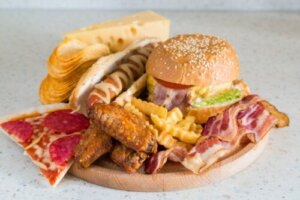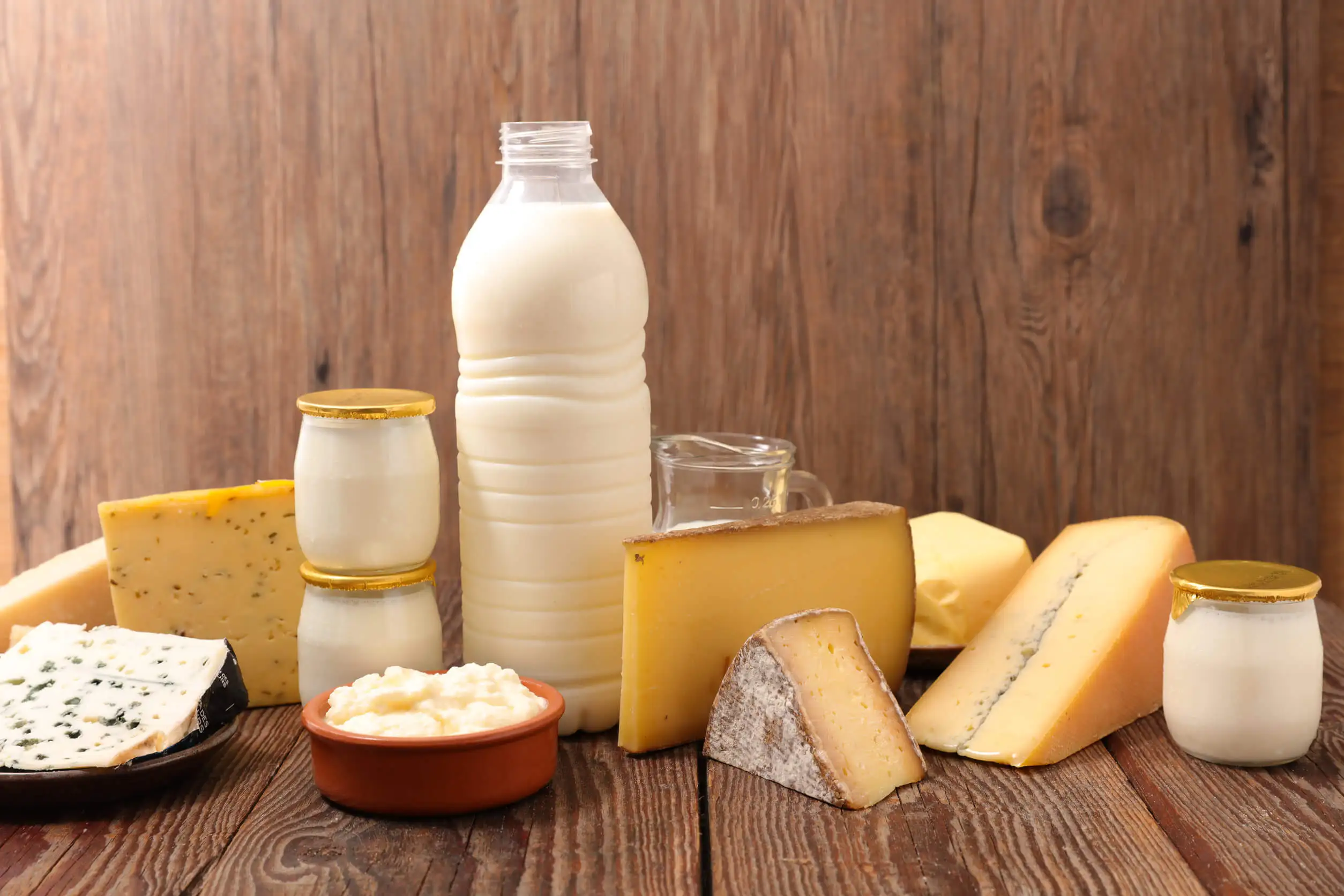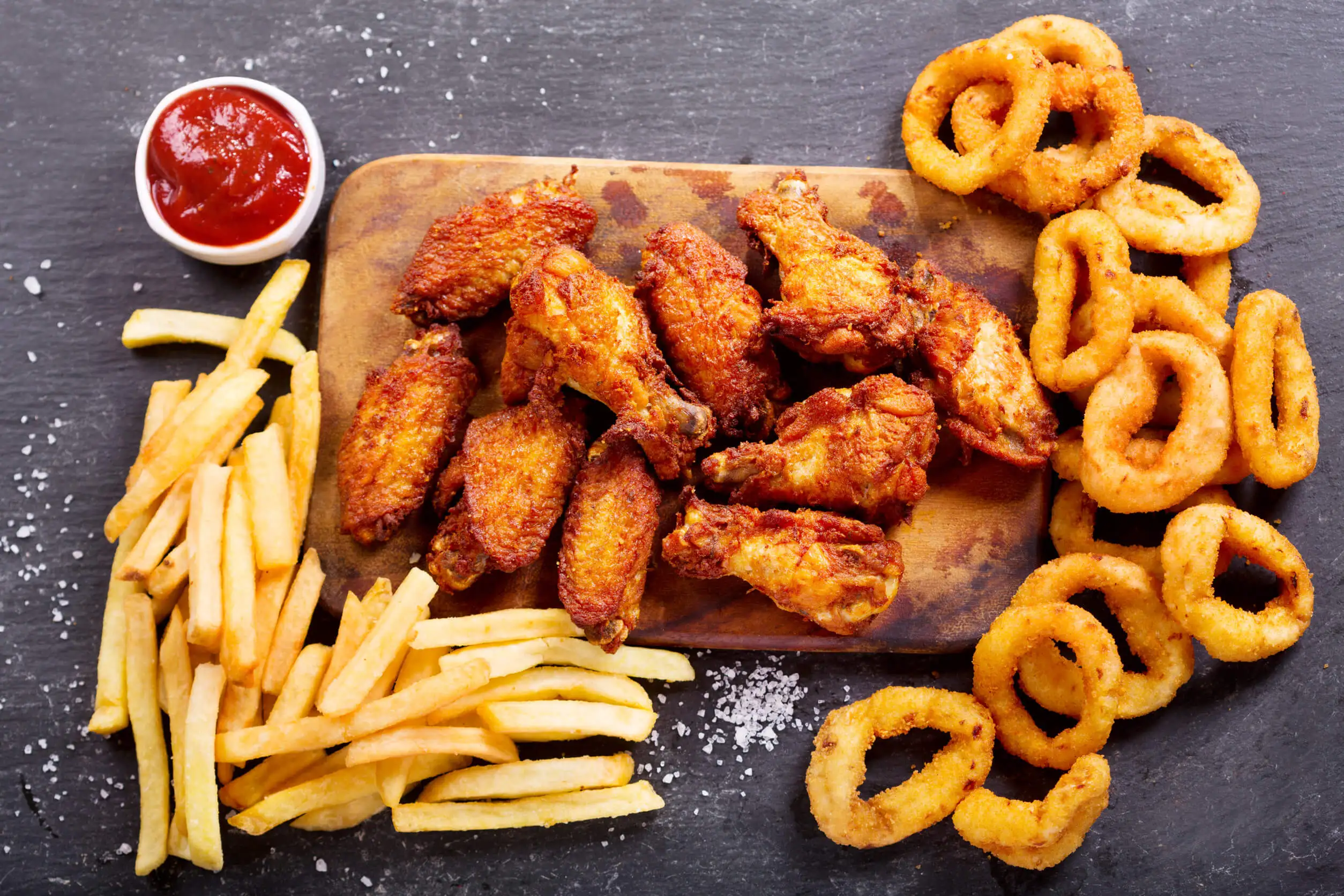5 Foods that Increase Bad Cholesterol


Written and verified by the nutritionist Maria Patricia Pinero Corredor
Cholesterol is a type of fat found in foods of animal origin. It’s as important as any other lipid, as it’s present in the lining of all cells and is a precursor of important substances for the body. However, foods that increase bad cholesterol should be avoided in healthy diets.
Cholesterol is divided into two main groups:
- The good type is absorbed in the intestine and transported in the blood, using lipoproteins known as HDL. They reach the liver to form hormones, bile salts, and vitamin D, among other substances.
- In contrast, the cholesterol that is bound to the transport medium known as LDL or bad cholesterol, carries the fats from the liver to the cells. That is, in reverse. When LDL is very high, the arteries become clogged.
Foods that increase bad cholesterol that you should avoid
Most of the foods that increase LDL are those that contain saturated and trans fats. In this list, we list those that are most harmful to your health.
Read also: Is VLDL Cholesterol Harmful?
1. Full-cream dairy
Full-cream milk is high in saturated fat. A single cup contains 4.6 grams. So, to avoid raising your bad cholesterol, you can substitute it with skim milk.
The same applies to yogurts, creams, cheeses, and butter made from full-cream milk. To lead a healthy lifestyle, start consuming skimmed products.
Skimming refers to the phase in which the fat part of the milk is removed. However, in the process the content of fat-soluble vitamins decreases. In order to maintain the original nutritional properties, the lost vitamins are added.
In the case of cheeses, the most cured cheeses contain the most cholesterol:
- Gouda
- Parmesan
- Brie
Those with the lowest cholesterol content are the following:
- Cottage cheese
- Mozzarella
- Feta

2. Red meat
Veal, beef, and lamb are rich in cholesterol and saturated fats. Lamb, for example, contains 11 grams of fat per 100-gram (4 oz) serving.
To avoid this, you can opt for skinless white meats such as turkey, chicken, or rabbit. As well as choosing lean cuts, that is, with less than 3% fat.
Among the most popular lean cuts are the following:
- Sirloin
- Skirt steak
- Filet
- Butt steaks
- Leg steak
3. Eggs
Cholesterol has always been associated with eggs. However, the highest amount of fats and cholesterol are found in the yolk. The yolk contains 27 grams of total fat. The white, on the other hand, contains no cholesterol and can be consumed without problems.
As eggs are a food of high biological value, their consumption isn’t discouraged. It’s known that, even though eggs contain 220 milligrams of cholesterol, they also contain phospholipids, a type of fat that dissolves easily. These interfere in the absorption and effect of cholesterol in the blood. So, it’s recommended that you eat them with caution.
The recommended amount of eggs per day is one whole egg. Although, if you want to eat more, you could eat only the white.
Read also: Three Different Salads with Eggs that You’ll Love
4. Sausages
Sausages are prepared from meat and subjected to curing processes, additions of edible offal and pork fat, vegetable products, seasonings, and spices. They’re then introduced into pork casings.
Sausages include black pudding, salami, chorizo, mortadella, and fuet. These types of products have a high fat and salt content. For example, chorizo contains 9.45 grams of saturated fatty acids and 26 grams of total fat in every 100 of food.
5. Ultraprocessed food
Ultraprocessed and industrialized foods are high in sugar and saturated and trans fats. Diets with monounsaturated or polyunsaturated trans fatty acids are known to increase total cholesterol levels, especially LDL. But not only that, they also lower the good type.
Trans fats aren’t produced by the body and are defined as monounsaturated or polyunsaturated fatty acids that have at least one double bond in the trans position. That is, the hydrogen atoms of the double bond of the fat are on opposite sides. Normally, they’re on the same side in order to be recognized by the enzymes that digest them.
Their function is only to obtain energy. They’re formed naturally in ruminants, during industrial hydrogenation of oils, and when frying with polyunsaturated oils.
The heating of oil at high temperatures, at least 180 degrees Celsius for a long time, is one of the main sources of trans fats.
The type of oil, temperature, time, and quantity influence the oil degradation process and the formation of oxidation compounds and trans fat. This is why industrial fried foods are unhealthy. French fries in oil, for example, contain 24.9% trans fats.

Stay away from foods that increase bad cholesterol and change your diet
It’s recommended that you avoid the consumption of ultra-processed foods, in order to reduce the risk of coronary diseases and lower cholesterol. Try not to eat sausages, fried foods, or whole dairy products, as these are the main foods that increase bad cholesterol.
The recommended products to lower cholesterol are legumes, fruits and vegetables, fish, and cereals. However, you need to accompany this with a healthy lifestyle.
All cited sources were thoroughly reviewed by our team to ensure their quality, reliability, currency, and validity. The bibliography of this article was considered reliable and of academic or scientific accuracy.
- Ana Belén Ropero Lara. GRASAS TRANS, Grasas Hidrogenadas. Badali. http://badali.umh.es/assets/documentos/pdf/artic/grasa-trans.pdf
- NHS. Cholesterol. 2008. Disponible https://www.nhs.uk/translationspanish/documents/cholesterol_spanish_final.pdf
- Bonet Bartolomé y Col. LECHE, NATA, MANTEQUILLA Y OTROS PRODUCTOS LÁCTEOS. Disponible http://www.lacteosinsustituibles.es/p/archivos/pdf/monografia_leche_nata_mantequilla_otros.pdf
- Institutos de estudio del huevo. El libro del huevo. 2000. Disponible http://institutohuevo.com/wp-content/uploads/2017/07/EL-LIBRO-DEL-HUEVO.pdf
- FDA. Papa frita. https://fdc.nal.usda.gov/fdc-app.html#/food-details/170698/nutrients
- FAO. Grasas y ácidos grasos en nutrición humana. Consulta de expertos. 2012. Disponible https://www.fao.org/3/i1953s/i1953s.pdf
- FDA. Salchicha, cerdo, chorizo, enlazado o molido, cocido, frito. 2019. https://fdc.nal.usda.gov/fdc-app.html#/food-details/746781/nutrients
- FDA. Cordero, cocido, asado (Navajo). 2019. https://fdc.nal.usda.gov/fdc-app.html#/food-details/167634/nutrients
This text is provided for informational purposes only and does not replace consultation with a professional. If in doubt, consult your specialist.








